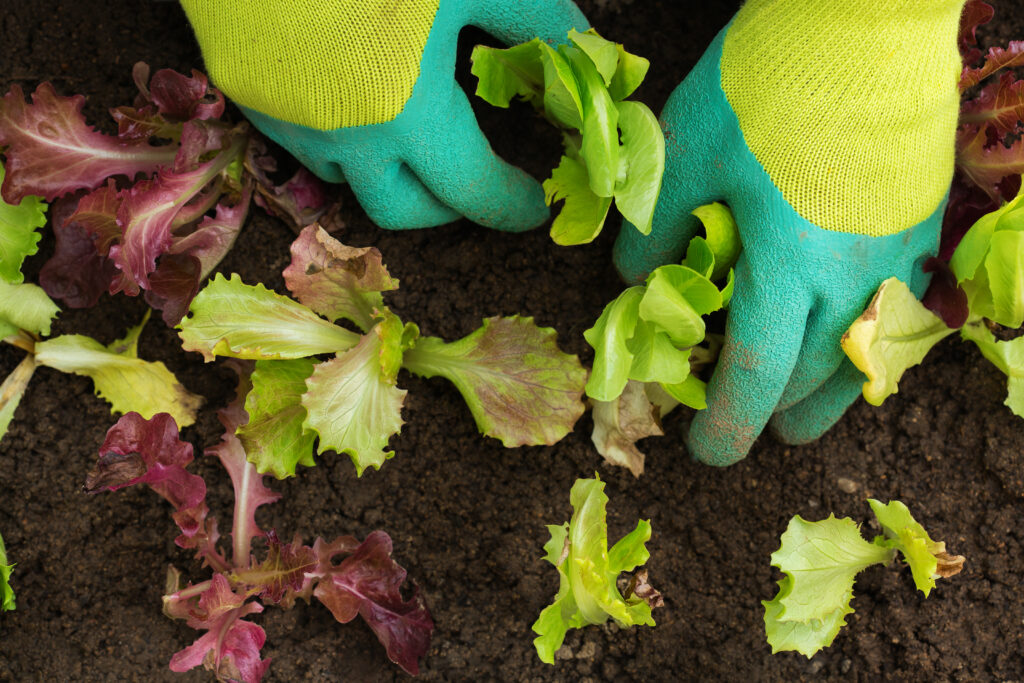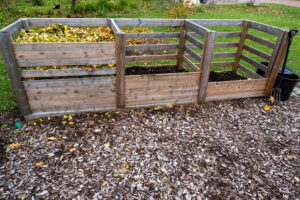Mental Health Awareness Week takes place from 13 to 19th May 2024. Since our inception at CoirProducts, we continue to raise awareness of the positive effects of gardening for one’s overall health and wellbeing. Towards this end, we support charities like Thrive that work in the areas of gardening for mental health, as well as creating a platform for people and organisations to share their inspiring stories.
Thrive is a charity dedicated to promoting the health benefits of gardening and nature. Since 1979, Thrive has been helping countless people across the UK using social and therapeutic horticulture. In marking Mental Health Awareness Week, we spoke to Thrive’s London Centre Manager, Kate Allardyce, on the important work they do in the area of social and therapeutic horticulture, and what we can do – however small or big – to help promote gardening as a therapeutic tool for mental health. Read on to learn more.
How does gardening impact the mental health and wellbeing of individuals participating in Thrive’s programmes? Are there any specific aspects of gardening/nature that help address specific needs of individuals?
Gardening and spending time in nature has been shown to have enormous benefits to mental health, through stimulating our senses, fresh air, being active, engaging in meaningful occupation and making a positive contribution. We see big transformations in the people who access our Growing Out mental health programme at Thrive Battersea. People experiencing anxiety, depression, isolation or other mental health conditions can access our service. Nature has a calming effect on the mind which can reduce stress and anxiety and improve low mood. Gardening helps to provide meaningful activity to increase motivation and gain a sense of purpose. Gardening with others supports social interaction to reduce isolation. Being active outdoors improves our physical fitness which impacts our mental health. Working together on garden projects gives people satisfaction and a sense of achievement through the opportunity to contribute to their community. For many it has been a lifeline at a difficult time or a stepping stone to give them the confidence and skills to go on to other opportunities. We have numerous case studies on our website here: Why gardening is good for your mental health.
Thrive adopts an approach called social and therapeutic horticulture – what does this approach entail and are there any specific activities or techniques that Thrive incorporates as part of social and therapeutic horticulture to support mental health?
Social and Therapeutic Horticulture utilises the positive benefits of plants and gardening with others in an outdoor setting to improve physical and mental health, develop skills and promote learning, increase social interaction, and improve confidence and independence. Gardening is a wonderfully flexible medium that can transform lives and Thrive sees first-hand how gardening can help everyone whatever their situation. Social and therapeutic horticulture uses the garden as a safe and secure place to develop someone’s ability, make friends and learn practical skills that will help them to be more independent. Using gardening tasks and the garden itself, Thrive’s horticultural therapy practitioners tailor activities for each gardener to address their particular needs and to help develop personal goals.
What role does community and social support play, and how important are they for participants’ mental wellbeing?
The social aspect of our therapeutic gardening programmes is so valuable. We work together in small groups in a relaxed and non-pressured environment that encourages social interaction. The opportunity to connect with others can reduce feelings of isolation or exclusion. Gardening with others builds confidence, communication, and social skills, fosters trust and support, and leads to greater independence. Our model emphasises creating a friendly welcoming group atmosphere where people can share and support one another.
Are there any specific gardening activities or projects that tend to resonate most with participants?
Thrive offers a wide range of varied activities across four very different garden settings within Battersea Park. Individuals find their own unique enjoyment and interest according to what motivates and inspires them. Our programmes are designed to nurture people’s learning and skills in a relaxed environment so there is something for everyone. Some people enjoy more physical tasks like digging or turning compost, some people enjoy learning about plants and naming them, some people enjoy observing nature, or delicate tasks like sowing seeds, or sweeping and tidying to see the immediate results of their efforts.
One of your goals for the coming years support efforts aimed at professionalising the SHT sector. Can you tell us more about your work in this area? And what can the gardening community, including individuals and businesses, do to help in these endeavours?
Thrive also offers education, advise and training for professionals in how to use STH to benefit others. We use our expertise and experience in STH to provide courses, which are delivered online and face-to-face. We also offer an STH Practitioner Diploma at our Reading Centre. We advocate on behalf of the profession to get STH recognised as a therapeutic intervention and to ensure that provision is matched to beneficiaries needs. Thrive is part of setting up a professional body for Social & Therapeutic Horticulture Practitioners.The gardening community, including businesses, can support the goals of Thrive by being ambassadors for our work and talking to people about the benefits of gardening and STH programmes for people with different needs. We also provide Corporate Volunteering Opportunities at our three centres in London, Reading and Birmingham for businesses to support our work.
Building on the above question, how can individuals support and contribute towards advancing gardening as a therapeutic tool for mental health?
In whatever space or setting you have available gardening can be used as a tool to promote health and wellbeing and bring about positive changes in someone’s life. Whether that is at home to enable you to be active, or in a social community setting such as a hospital, school or community centre. People can gain from both the passive enjoyment of being surrounded by plants or they can gain through getting active in the garden with others.




